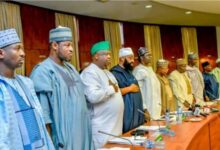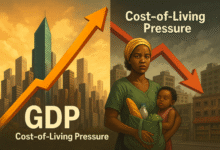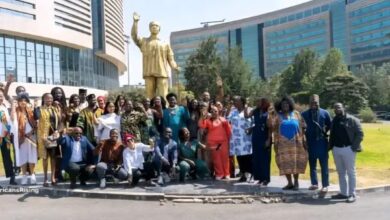Experts: Delay in passing 2019 budget will cause inflation, affect GDP
Economic and financial experts have said delay in passing the 2019 budget will cause inflation and also affect the country’s Gross Domestic Product (GDP).
The estimate of Nigeria’s income and expenditure for 2019 is yet to be passed by the country’s law makers, four months after it was submitted to the National Assembly by the executive.
Similarly, experts who spoke to our reporters said the delay would further create uncertainty and heighten associated business risks in the economy.
Professor Uche Uwaleke, Head of Department of Banking and Finance of the Nasarawa State University said: “The point has been made, time and over again that every time the budget is delayed, it negatively affects a number of economic activities which also affects growth (GDP)
“The 2019 budget is about N8 trillion and it has a 30 per cent capital component. That is the component that creates jobs and impacts unemployment because the recurrent component will always be met.
“This delay can trigger inflation because once we fail to invest in agriculture and manufacturing, output will drop, which then leads to job loss and unemployment growth.”
On what should be done to end the incessant delay in budget passage, the professor said: “It has already been recognised by the government, that we need to start early.
‘‘In addition, I think we need a budget law that clearly stipulates a time limit for the submission by the executive and a time limit for passage by the legislature.”
Similarly, the Director General of Lagos Chambers of Commerce and Industry (LCCI), Muda Yusuf, has said that delay in passage of the 2019 budget will further create uncertainty and heighten associated business risks in the economy.
“This is typically not good for investors’ confidence, either from a foreign investors’ perspective, or from domestic investors’ standpoint,” Yusuf said.
According to him, the delays being experienced in the budgetary process would further entrench the vicious cycle of poor budget implementation, especially the capital component of the budget, adding that the risk is that recurrent spending will be fully implemented while capital projects suffer the usual implementation shortcomings.
“The delay has implications for planning in both the public and private sectors of the economy. Strategic planning for many organisations takes a cue from the budget structure and the policies that come with it. To the extent that the budget is not in place, uncertainty and associated business risks in the economy are heightened.
“This is typically not good for investors’ confidence, either from a foreign investor’s perspective, or from domestic investors’ standpoint.
Also, an economist, Dr. Austin Nweze, said delay in the passage of the 2019 Appropriation Bill has virtually grounded the economy as the Nigerian economy is largely dependent on the annual budget.
Nweze, author of the ‘Economics of Leadership’ and lecturer at the Pan Atlantic University, Lagos, told newsmen that because of the delay in approving the budget, many businesses cannot plan for the year.
He blamed the development on the planners of the budget and what he called the “inefficiency” of the National Assembly.
He said, “The issue is that because of the way the Nigerian economy is structured, government’s involvement is very heavy, over 75 or 85 per cent, that means the budget has a lot to do with the economy. If you have any delay, almost all businesses cannot plan because they are waiting for government’s budget to know the direction.
“Once the approval is done, companies can now begin to plan based on what government is doing. And for those who do government businesses, it takes a longer time, maybe towards the end of the year before they begin to do business.
“When government starts spending, it has impact on the economy, by the time you know it, the whole budget is made nonsense of.”
On her part, Binta Yahya, a Yobe-based professor of Energy Economics also decried that the delay in the budget affects the growth of the economy because such delay does not allow for the implementation of the capital component of the budget to a large extent, adding that the implementation of capital budget is what keeps the growth of the economy going.
She expressed belief that this year the legislature is deliberately stalling the passage of the budget because for some their political career was hanging in the balance since they are not returning hence they are trying to politicize the budget not because it cannot be passed or the money to pass it is not available.
She also noted that the general elections held earlier in the year would naturally affect the passage of the budget.
Prof Binta noted that most economies, especially that of Nigeria, depend on government’s budget to function properly and that the private sector needs the passage to know what direction to head in its plans for the year.
She stressed that early passage of budget also helps the private sector in its participation with the capital market.
She therefore stressed that delay in budget passage creates uncertainty and fear hence those who want to invest are uncertain as to what to do.
Umar Shehu Futee, an Abuja-based economist, said the delay in budget passage would mean that when eventually the budget is passed, government will have less time to use funds allocated in the budget since presently the calendar is already four months into the year and this brings into question the issue of the absorptive capacity of the economy.
“Assuming the budget is passed and signed next week, that means government will only have 7 months to spend what was initially meant for a 12-month budget calendar, which is not productive for a serious minded economy,” he said.
Umar also noted that the delay will postpone the inflationary and exchange rate pressures that usually come with increased government spending.
“This is because more money in the system would translate into increased consumption and higher demand for foreign exchange,” he said.
Also commenting, an economist and senior lecturer at the Lagos Business School (LBS) Lagos, Dr. Bongo Adi, said 2019 is an election year thus it’s almost certain the budget passage would suffer a delay because of the politicking.
He also told our correspondent that no significant activities might go on until May 29, 2019.
On the impact on the economy, he said, “luckily it is the same government that is returning at the federal level so things might not change significantly.”
He also noted that since the cabinet isn’t changing till after inauguration, government policies might move on smoothly.
Samson Oyedeyi












